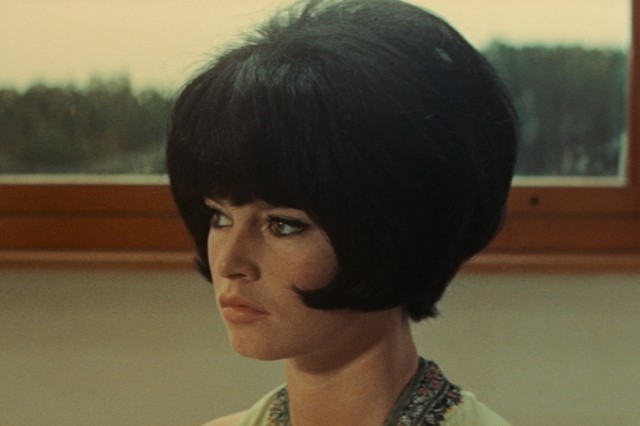Jean-Luc Godard’s Le Mépris at 60

A reminder of Jean-Luc Godard’s mercurial brilliance and antipathy to Hollywood, Le Mépris – his study of a poisoned marriage and poisonous film industry both – celebrates its 60th anniversary with a 4K restoration and a Blu-Ray and DVD release…
One of the most eagerly anticipated screenings at this year’s Cannes was a posthumous addition to the celebrated canon of Jean-Luc Godard, who died aged 91 in September 2022. Also shown during the festival was his 1963 film Le Mépris; marking its 60th anniversary, the film – JLG’s first colour picture – has been treated to a 4K restoration and Blu-ray and DVD release.
Translating to Contempt in English, its title is apt. Musing on the caprices of relationships and the film industry both, in one respect Le Mépris reads like a story for the ages. In it we follow Michel Piccoli’s screenwriter Paul, in negotiations with Jack Palance’s philistine producer Jeremy Prokosch. His job: to reinvigorate the script of an adaptation of The Odyssey, directed by non other that Fritz Lang (with the master playing himself as gently opinionated, somewhat resigned old hand).
Along for the ride is Paul’s wife Camille (Brigitte Bardot). They’re happy together and very much in love. But things begin to fall apart almost immediately on meeting Prokosch – Paul is caught between a juicy pay cheque that will guarantee the couple’s immediate material future and his wife’s judgement. Her contempt; which Paul earns for selling out? For openly flirting with the producer’s put-upon assistant? “Why do you hold me in such contempt?” he asks. She, and therefore Godard, never makes this clear.
Tellingly, it was shot during Godard’s marriage to then wife Anna Karina, and one can’t help but read Paul and Camille as proxies for the real life, off-set psychodrama the couple were apparently enacting. Camille donning a black, somewhat Karina-esque wig, in addition to Piccoli wearing Godard’s own clothes for the role seems to confirm things; after a short and tumultuous marriage, Godard and Karina would divorce two years later.
So: what to make of Le Mépris these six decades on? In some respects, one can’t help but consider it something of a curate’s egg; often, for example, I’m not sure what the director’s preferred reading is. Film within a film technical exercise? Acerbic critique of Hollywood? Bitter interrogation of Godard’s real-life relationship? It is, seemingly, a tangled melange of all of these things.
I think it is most successful, however, seen through the lens of its director’s opinion on life as a creative within the lingering vestiges of the Hollywood Studio System. (Indeed, Godard worked a difficult relationship of another kind – with the film’s own producers – into Palance’s relentlessly bullish Prokosch.) Viewed this way it prods, questions, and provokes, leaving one in little doubt as to the realities of the compromises demanded by such an undertaking.
Godard was hardly an outlier in this regard – it is not difficult to find others opining to similar effect. Not least Fritz Lang, who, by the time he was playing a version of himself in Le Mépris, had long called the US home. Writing his own dialogue for the movie, in response to the poisoned chalice offered Paul, he remarks: “Some years ago – some horrible years ago – the Nazis used to take out a pistol instead of a checkbook.” And speaking later that decade in an interview with Sight & Sound (Summer 1967), he said: “Hollywood exists only to make money. I haven’t seen an American picture in years that I would like to see again.” Life imitating art – and vice versa.
Perhaps the key word there is art. Even more rarely associated with Hollywood’s output today than then, it is a reminder that even if some of his films weren’t entirely successful, they were, and remain, worth discussing and ruminating over, always. In them, Godard strove for more than most; he saw, and was dedicated to cinema as an art form, above all else.
Special Features include: Il était une fois… Le Mépris (52mn) on the Blu-ray UHD; An introduction by Colin MacCabe (6mn) UHD; Paparazzi by Jacques Rozier (22mn); and Le parti des choses by Jacques Rozier (10mn)
Mike Pinnington
Le Mépris (Contempt) is available now





